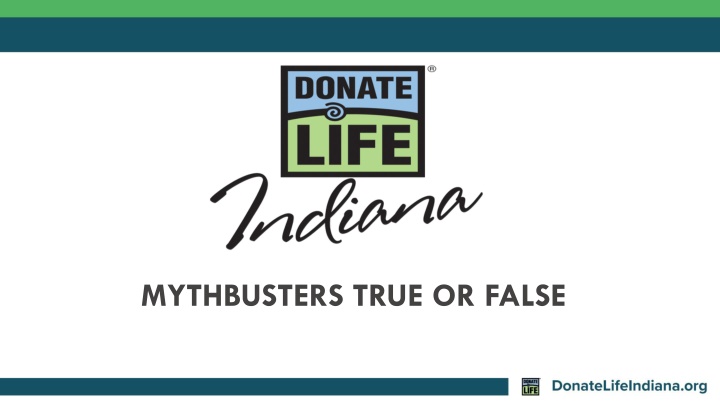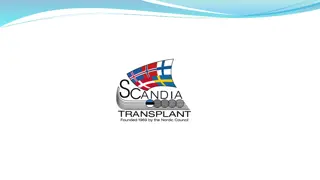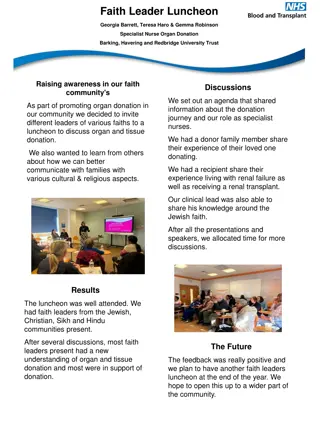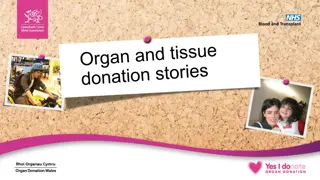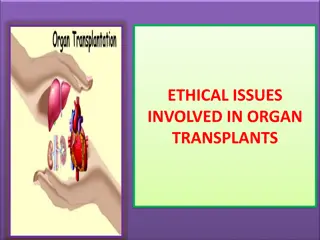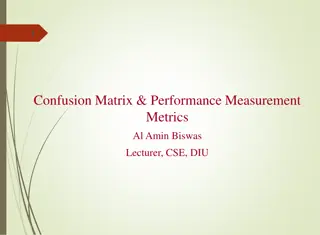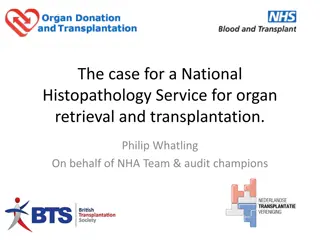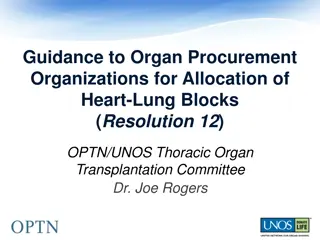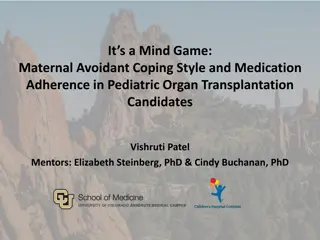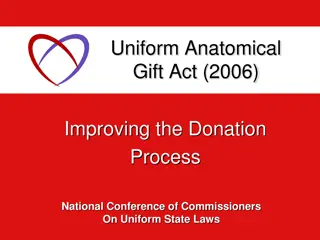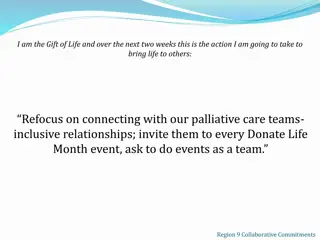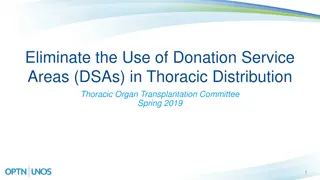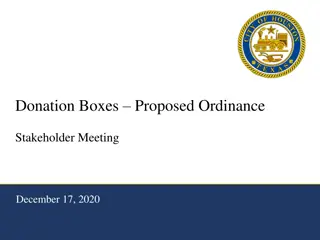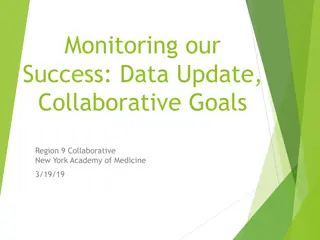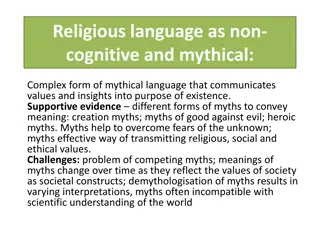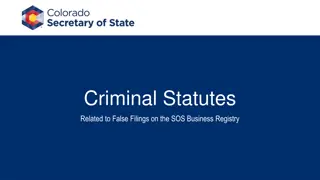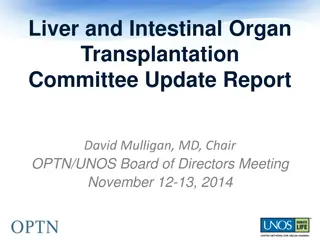Organ Donation and Transplantation Myths True or False
Explore common myths and facts about organ donation and transplantation through a fun true or false game. Learn the truth behind misconceptions like who can be a donor, the possibility of brain transplants, where to register as a donor, fairness in organ allocation, and the impact on funeral arrangements for donors. Enhance your understanding of donation and transplantation processes and make informed decisions.
Download Presentation

Please find below an Image/Link to download the presentation.
The content on the website is provided AS IS for your information and personal use only. It may not be sold, licensed, or shared on other websites without obtaining consent from the author.If you encounter any issues during the download, it is possible that the publisher has removed the file from their server.
You are allowed to download the files provided on this website for personal or commercial use, subject to the condition that they are used lawfully. All files are the property of their respective owners.
The content on the website is provided AS IS for your information and personal use only. It may not be sold, licensed, or shared on other websites without obtaining consent from the author.
E N D
Presentation Transcript
This is a game of the most commonly missed questions in the world of donation and transplantation. Ask students true or false questions to answer aloud or have students stand up if they believe the answer is true and stay seated if they believe the answer is false.
True or False: Anyone can be a potential donor? True: Anyone can sign up to be a donor. It doesn t matter what illness or condition you have or develop later on in life, doctors will make that final call.
True or False: You can get a brain transplant? False: We do not perform brain transplant recoveries at this time. Although, scientists are always continuing medical research, so we can t determine what the future holds on this topic.
True or False: The only place to register to become an organ donor is at the BMV (Bureau of Motor Vehicles)? False: You can register at www.donatelifeindiana.org at any time and any age. Donate Life Indiana manages the registry for all donors in this state. For those that do register under the age of 18, the final decision for organ donation will be made by your family. Take time to discuss your decision and their decisions regarding organ, tissue, and cornea donation.
True or False: Celebrities and those with a lot of money will receive their transplants first? False: It doesn t matter if you are a celebrity or a millionaire, you would have the same chance at receiving an organ transplant as anyone else on the transplant wait list. The list is controlled through the computer at UNOS and it picks the BEST possible match based on blood type, body size, location, and degree of illness, keeping it fair and unbiased. Visit the UNOS Website to learn more.
True or False: I CAN have an open casket funeral if I am an organ or tissue donor? True: Organ and tissue donation and transplantation doesn't interfere with having an open-casket funeral. The donor's body is clothed for burial, and there are no visible signs of organ or tissue donation.
True or False: I can be paid to be an organ donor? False: It is illegal to buy or sell organs in the U.S. The National Organ Transplant Act (NOTA), a federal law, makes it illegal to buy or sell organs for profit. You can be sentenced up to five years in prison or a $50,000 fine, or both.
True or False: Doctors will not fight to save my life if they know I am an organ donor? False: Doctors, nurses and your medical team are a completely separate team from those that coordinate transplant. They will do anything and everything to help save your life and will not even know if you are an organ donor or not.
True or False: It costs money to be an organ donor? False: It doesn t cost any money for the donor or donor family to be an organ donor. The local organ procurement organization will help cover all of these costs if you decide you want to be an organ or tissue donor.
True or False: You can walk into any hospital in Indiana to receive an organ transplant? False: The hospital must be identified as a transplant hospital. In the state of Indiana, we currently have partnerships with 3 transplant hospitals: IU Health- Indianapolis, Lutheran-Fort Wayne, and St. Vincent s- Indianapolis. However, essentially any hospital with an OR (operating room) can cover the donation procedure.
True or False: You can be a living donor? True: You do not have to register to become a living donor. You can make the decision to do this on your own, however; you must still be a match to the recipient and will have to go through medical tests to see if you are the right fit.
True or False: You can donate your organs, tissues and corneas when you die. True: When you die, your medical team will work together to help decide what organs are viable if you have signed up to be an organ donor. They will ask family members about whether or not you would want to be a tissue or cornea donor. Have conversations with your family about your decision.
True or False: If you do not register at the BMV when getting your driver s license to be an organ donor, then you can never become one? False: If you decide that you want to become an organ donor at any time, you can visit the registration website at www.donatelifeindiana.org. For those that do register under the age of 18, the final decision will be made by your family. Take time to discuss your decision and their decisions regarding organ, tissue, and cornea donation.
